Kinhtedothi - On the morning of November 23, the National Assembly discussed in groups the Draft Law on Management and Investment of State Capital in Enterprises (amended).
Lack of regulations on the pioneering role of enterprises
Participating in the discussion, delegate Pham Duc An (National Assembly Delegation of Hanoi ) said that the current mechanism for managing State-owned enterprises is like a "too tight shirt" that is not suitable for the requirements of innovation and development. Previously, private enterprises craved for incentives like State-owned enterprises, but now, State-owned enterprises want a flexible mechanism like private enterprises to compete equally.
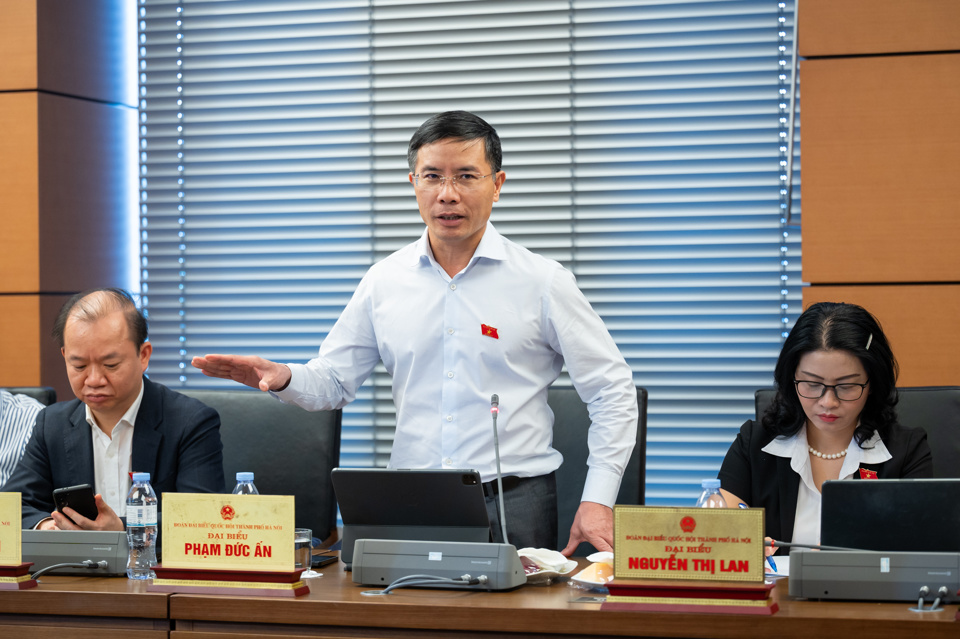
The delegate mentioned the major issue of State asset management in State-owned enterprises. History has shown many cases of asset loss, causing serious economic and social consequences. When the State strictly controls every action of an enterprise, this can lead to stagnation, reduced competitiveness and creativity. On the contrary, if management is too loose, the risk of recklessness and wrongdoing can still occur.
Therefore, according to the delegate, a new approach is needed, which is to move from managing specific behaviors to evaluating overall goals. For example, some business decisions may have small mistakes, but if the overall business achieves its targets and tasks, then individual responsibility should not be excessively pursued.
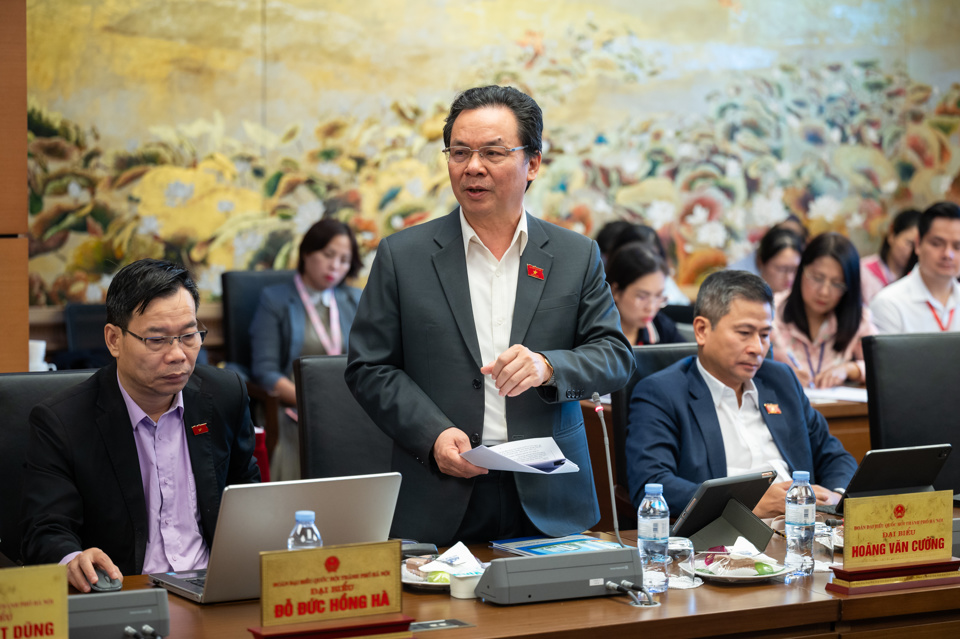
The delegate also said that the Draft Law lacks provisions on the pioneering role of state-owned enterprises in areas such as digital technology, supporting industries, and imported goods. "If we only assign profits to state-owned enterprises, we will not achieve the goal of changing and increasing the State and the industry," emphasized delegate Pham Duc An.
It is difficult to assign responsibility for a collapsed business.
Speaking at the discussion, delegate Hoang Van Cuong (National Assembly Delegation of Hanoi) emphasized that Law No. 69/2014/QH13 (Law on Management and Use of State Capital Invested in Production and Business at Enterprises) provides very strict management regulations but does not clarify responsibilities.
This regulation leads to State-owned enterprises almost losing the initiative in deciding production and business activities from their own capital. This also affects the production results of State-owned enterprises.
Delegates said that despite such strict regulations, there is still a lot of loss of assets and capital invested by the State in enterprises. Recently, some corporations and general companies have collapsed.
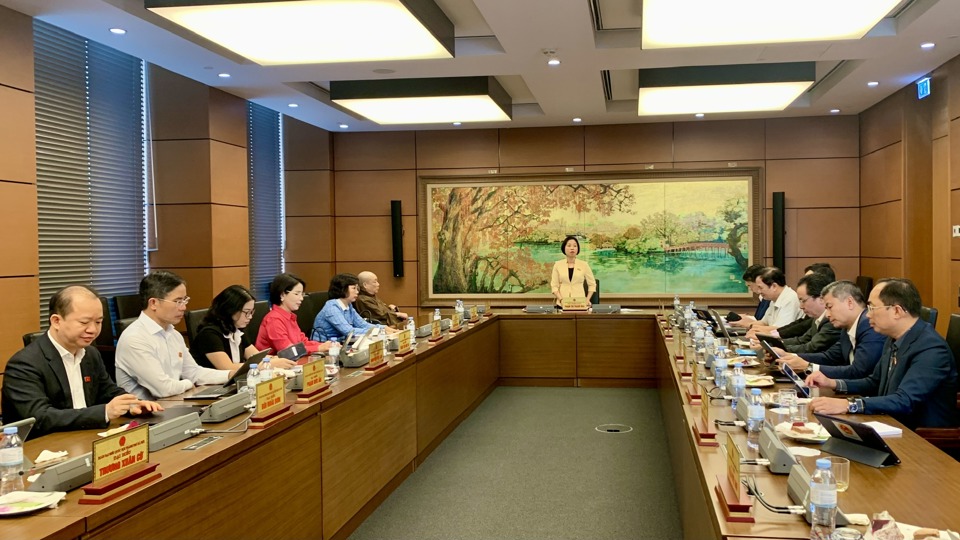
"We only take measures when things break down, not when we rectify them. We don't know in advance. Then it's not easy to assign responsibility. Therefore, this is something that needs to be changed in this revised law," said delegate Hoang Van Cuong.
According to the delegate, there is currently confusion between State management, management by owner representatives and business management. These are three different entities but are confused, making the assignment of responsibility ineffective, and we do not know why.
"It is not known where the loss is coming from, and it is also impossible to determine. If there are no clear regulations, we cannot delegate authority or assign responsibility," said delegate Hoang Van Cuong.
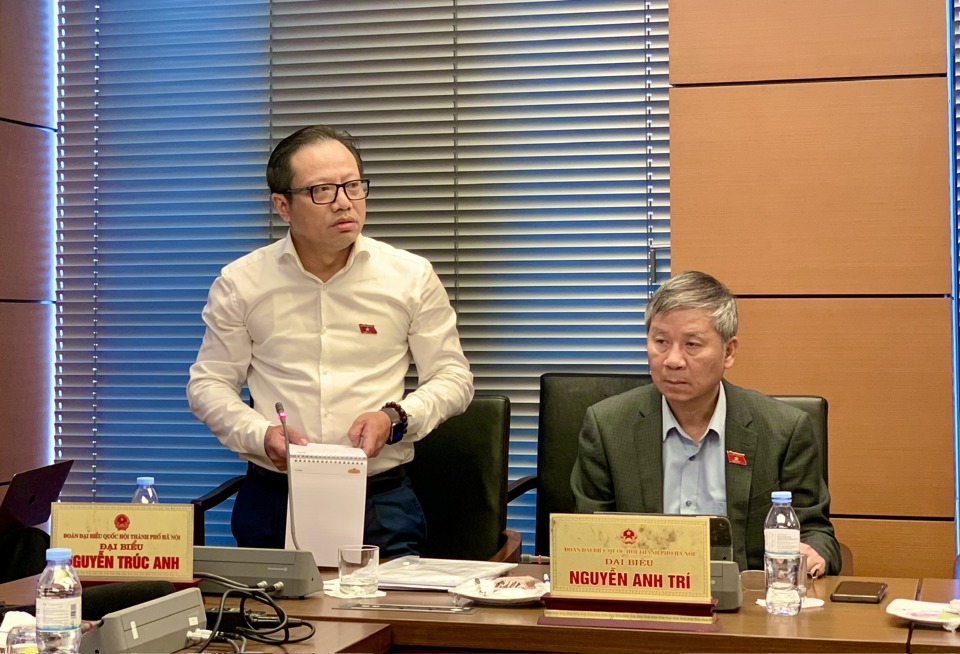
Delegate Nguyen Truc Anh (National Assembly Delegation of Hanoi) raised the issue of the role and responsibility of the Capital Committee in the Draft Law. According to the delegate, what will the Capital Committee do because, if the capital ownership is over 50%, there will be ministries, branches, and localities to manage. According to the spirit of streamlining, the Capital Committee is required to manage the parts that no one else manages. Basically, other enterprises that are managed by the Central or local governments have the key task of State management for those enterprises; they have full authority to decide on human resource development strategies.
Therefore, the delegate believes that in the coming time, it is necessary to review the organization, operations, and management areas of the Capital Committee. More importantly, it is necessary to create an even playing field between private and state-owned enterprises.
Source: https://kinhtedothi.vn/co-che-quan-ly-doanh-nghiep-nha-nuoc-giong-nhu-mot-chiec-ao-qua-chat.html





![[Photo] Nearly 3,000 students moved by stories about soldiers](https://vphoto.vietnam.vn/thumb/1200x675/vietnam/resource/IMAGE/2025/5/17/21da57c8241e42438b423eaa37215e0e)




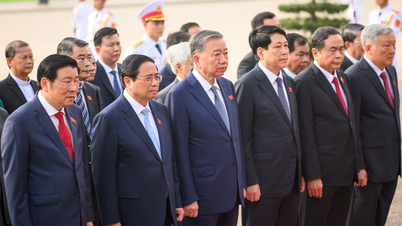
















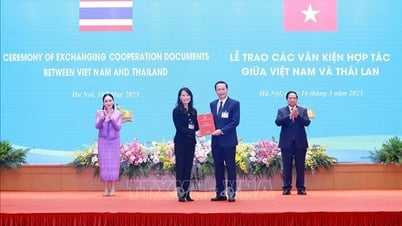


























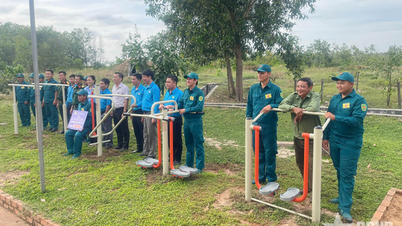
















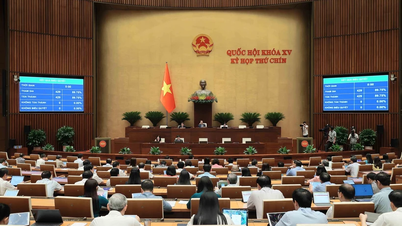













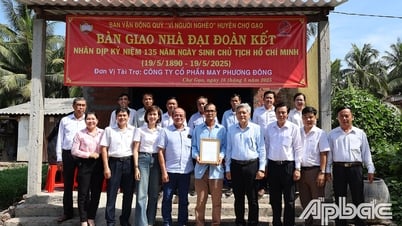

















Comment (0)